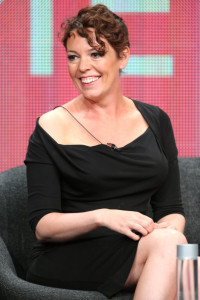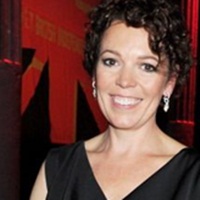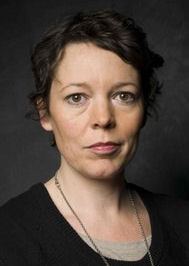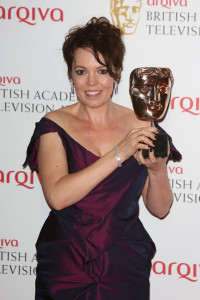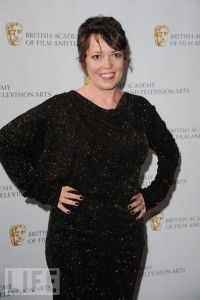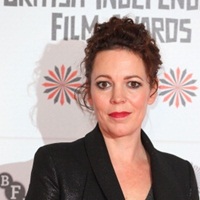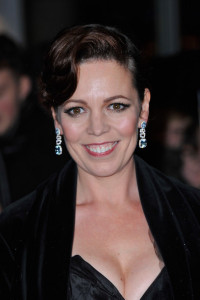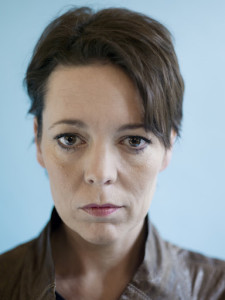 “Broadchurch” ends its eight-episode run on Wednesday (September 25) on BBC America.
“Broadchurch” ends its eight-episode run on Wednesday (September 25) on BBC America.
For American viewers patient enough to avoid just rushing to BitTorrent sites after getting hooked on this British murder mystery, answers are finally coming.
Yes, answers are coming in the death of Danny Latimer, but what are the chances that those answers will bring satisfaction to Detective Sergeant Ellie Miller (Oliva Colman) or closure to grieving mother Beth Latimer (Jodie Whittaker)? Well, that’s what “Broadchurch” is really about.
Back in July at the Television Critics Association press tour, I sat down for 10 minutes with Colman (“Tyrannosaur”) and Whittaker (“Venus”) to talk about their twisty, emotional murder mystery, which was a sensation in the UK. The conversation took place before the premiere, but I didn’t transcribe the interview in time and once I transcribed it, I realized it would be just as effective before the finale, since it really spoils nothing.
So warm up for Wednesday’s finale with my chat with Colman and Whittaker, after the break…
HitFix: First off, could you say your names so I’ll be able to differentiate when I transcribe?
Olivia Colman: I’m Olivia Colman.
Jodie Whittaker: I’m Jodie Whittaker.
Olivia Colman: That’s “Colman” with no “e.”
HitFix: Which I actually messed up last night when I was tweeting about how good you are in this, so you can take that as an insult or a compliment.
Olivia Colman: Oh, well it’s very hard to be cross at you then.
HitFix: So I enjoyed this a lot, but I’ll admit that at least initially, I was like, “Oh, not another long-term murder investigation drama, do we need one of those?” and then it becomes clear that it’s much more than that. Did you guys have similar thoughts when you first approached the project?
Jodie Whittaker: I don’t know if we do them as often as you guys.
Olivia Colman: No, I think that’s probably true. And also, ours are never as long, because we can’t really afford to do it. The fact that we had eight hours to do this was very unusual for us in The UK and a credit to the channel who read the script, liked it and said, “OK. Yeah. We’re gonna give you eight hours worth of slot,” which is extraordinary.
Jodie Whittaker: I think Chris [Chibnall], the writer, pitched for 10 and they went, “Alright. We’ll give you eight.”
HitFix: How did the schedule or production pace on something this long feel different from what you’ve been accustomed to doing on TV?
Olivia Colman: Well, it just means you get more chance to do it justice. Know what I mean? Every character has a full arc. They’re all multi-faceted full people. You are away from home for longer, which is hard, but being able to do it well, you feel like you can if you’ve got longer to do it.
Jodie Whittaker: And you’re in an environment where you trust all the powerful people. The directors were wonderful. The writer were there the whole way through and was at the end of the phone for any question.
Olivia Colman: Yeah, he was brilliant.
Jodie Whittaker: And the producers were fantastic. I think it’s one of the most ensemble pieces I’ve ever been a part of for that. We were a real family.
Olivia Colman: It’s lovely when you know that the people at the top… I think the commissioner of it refused to read the last episode. He wanted to enjoy it with everybody else. When you’ve got that backing, when somebody is just enjoying what you’re doing so much, it’s a lovely feeling. And it’s an unusual feeling.
HitFix: And that last script, how was it distributed?
Jodie Whittaker: We got six, seven and eight…
Olivia Colman: You keep saying this, but is that true? I think it’s not.
Jodie Whittaker: We got six, seven and eight on a Friday in Late October. I’ll set the scene.
Olivia Colman: No! No, we got six and seven and then eight didn’t come for ages. Do you remember? We were all going, “Are you kidding me?” because we’d read six and seven.
Jodie Whittaker: Oh right!
Olivia Colman: I think eight was… because he was still fiddling. We almost didn’t get it.
Jodie Whittaker: Oh right. Mine’s a better story. I’ve said it about 15 times.
Olivia Colman: So I’m gonna go with Jodie. Otherwise it makes her look really stupid. [They both laugh.]
HitFix: Regardless of exactly the timing, when you got it, how quickly did you go to read it and go to the end?
Jodie Whittaker: Oh God yeah!
Olivia Colman: Everyone.
Jodie Whittaker: No one knew. The person who did it didn’t know.
Olivia Colman: We were all filming in Bristol and by the time everyone had arrived back home in London on that Friday night, everyone had read all three, pouring through it on the trains and phoning each other. We filmed everything pretty much chronologically, so we didn’t know right up til three-quarters of the way through or later who’d done it.
HitFix: And what was your one-word immediate reaction to when you saw who it was.
Olivia Colman: Oh, we’ve gotta be careful to say the wrong thing. I think knew…
Jodie Whittaker: I knew. By then, we were all with it for four-and-a-half months and we were in it.
Olivia Colman: By that point, the “whodunnit” didn’t matter. It was a “howdunnit” and a “whydunnit.”
Jodie Whittaker: Yeah, it’s not just that.
Olivia Colman: And that was the most shocking thing for me, I think. We sorta maybe had got whodunnit, but when you get [she says the gender of the killer, laughs and corrects herself] their reasons…
Jodie Whittaker: Don’t spoil it, will ya?
HitFix: Heavens no. I wouldn’t want to. Did you guys watch it week-to-week in the UK?
Olivia Colman: Yeah, when it was on, actually I did. I didn’t see everybody else’s scenes and that’s why it’s so nice to watch. Awww… Andy Buchan…
Jodie Whittaker: The guy that played my husband in it is amazing. Every scene you did with him was an extraordinary process. But for all of us, everything to do with David Bradley and everyone, that was what was amazing, but also quite terrifying. You knew there wasn’t a weak link, so you’re like, “Please don’t be me! Please don’t be me!” So yeah, it was fun and I watched it for that. And it was bizarre, the reaction. Wasn’t it? It was a real crowd-pleaser.
Olivia Colman: I’ve only ever done stuff that not many people have watched, so to suddenly do something that everyone’s watching, well it’s so gratifying that they liked it as much as you did.
HitFix: Could you sense the buzz building and the conversation building around the show?
Olivia Colman: The previews released by the journalists were great, but seven and eight were not released to anybody so the journalists were also going with their theories and they were becoming super-sleuths themselves and that was really exciting, that those people who watch everything all the time were genuinely excited.
Jodie Whittaker: I think it’s because of the feature of the media in it as well. It’s not just about the police officers or the family. It’s about so many different elements that come into play when something like this happens.
HitFix: I know you guys said on the panel that you had a thing where you put stickers on the people you thought were involved. Was there anyone in the cast who was particularly good at that detective work? Anyone who had the right mindset?
Jodie Whittaker and Oliva Colman: No!
Olivia Colman: No. Least of all David [Tennant] and I, who played the detective. He was constantly going, “She’s got big hands. He’s got big hands.”
Jodie Whittaker: Because that’s the one clue. They’ve got big hands. [She looks down at her hands.] Little. Innocent.
HitFix: So you knew you were out from Day One?
Jodie Whittaker: Yeah, well, I didn’t know from Day One, but I kicked off a bit and was a bit like, “Chris, please! Tell me it’s not me. I can’t get my head around that. That’s not what I’ve played!” Also, I’m in scenes by myself picking up his clothes and t-shirts. That would be such a cheat for the audience, that you’ve gone there.
Olivia Colman: So he did? He put you out of your misery?
Jodie Whittaker: I think it’s fairly obvious I’m not.
HitFix: You’re one of the few people who isn’t really red herring-ed.
Jodie Whittaker: Yeah. Basically, it’s me, Oliva and David.
Olivia Colman: I tried to start a rumor, “It’s David Tennant! Because he wanted to kickstart his career again.” It didn’t really catch on.
HitFix: I know you guys also said that nobody on set was spectacularly Method-y and so you were able to leave the drama behind at the end of shooting days. But what is the key to creating an environment on set where you guys are free enough to go to some of those emotional places that you go to?
Oliva Colman: Script is always Number 1. If it’s a terrible script, to overuse an overused thing, “You can’t polish a turd.” You can’t do a good job if the script’s not there. And then we had experienced, fantastic directors and crew. We felt safe to experiment.
Jodie Whittaker: And we never pushed… There was none of this kinda amateurish thing where you’re like 50 takes later. It was like they knew they had the cast and if you give us the space, we can do it and to not be killing it for hours and hours and hours, because you get it in the first take, you get in the second take. You don’t need to do 15 from the same angle. So that’s what was brilliant. We certainly were in an environment that was aware of that.
HitFix: Last question: You both spend a lot of this series in tears. Do you think of yourselves as being good criers? Have you always been good criers? [They both laugh.]
Jodie Whittaker: I don’t know! It’s not about that!
Olivia Colman: I don’t think you should ever be considering what your face is doing.
Jodie Whittaker: Yeah, that’s what I mean. I think the thing that I would say I would compliment ourselves on is that we lack vanity in that sense. Whatever happens, happens.
Olivia Colman: Yes, that’s very handy.
Jodie Whittaker: When we watched it back, I’m sure both of us were doing things we had no f***ing clue we were doing when we did them.
Olivia Colman: I am not a pretty crier!
Jodie Whittaker: But also, if a scene says in the stage direction “She bursts into tears” and I don’t necessarily feel it in the moment, I feel no pressure to. I think we were trusted. Chris created these amazing roles, but then on the opposite of that, a lot of the time me and you weren’t necessarily meant to…
Olivia Colman: Because looking at the upset in someone’s eyes… It’s not like it’s on my CV, “I’m an excellent crier.” It’s just that I’m an incredibly emotional person.
Jodie Whittaker: And it’s the worst! There’s divorces and there’s all these horrendous things that happen, but this is the worst. It’s indescribable.
Olivia Colman: Someone young dying is the worst.
Jodie Whittaker: It’s not like easy in the sense that that’s an easy feeling, but it’s just that you don’t need a lot of help to be upset about that.
HitFix: Was it hard for you to watch those emotional scenes in those episodes?
Jodie Whittaker: Yeah.
Olivia Colman: Yeah, I can’t watch those scenes with Jodie on the beach.
Jodie Whittaker: I think for all of us, because we knew how upsetting it was to do, when you’re watching it, you go, “Well, that was a tough day, wasn’t it?”
Olivia Colman: Although we say, “Yes, at the end of the day you leave it behind,” but in the moment it’s real. It has to be in order to do it justice.
Jodie Whittaker: And also, you’re essentially playing out things that have actually happened to people and to not take that seriously or to not throw 100 percent of your energies…
Olivia Colman: You’d be doing a disservice.
Source: hitfix.xom – Interview: Olivia Colman and Jodie Whittaker talk Broadchurch
